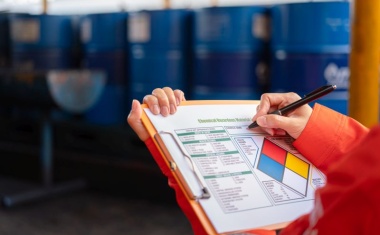
New Deal to Boost Competitiveness
The EU Green Deal has hurt Europe's industry. The Clean Industrial Deal aims to improve this, but a change of mindset at the Commission is needed.

The EU Green Deal has hurt Europe's industry. The Clean Industrial Deal aims to improve this, but a change of mindset at the Commission is needed.

The EU Chemicals Strategy for Sustainability (CSS) highlights the shift to a hazard-centric approach in EU chemical regulation, emphasizing 'Substance of Concern' over risk-based measures.

Ahead of the unveiling of the EU’s Clean Industrial Deal, Ineos Chairman and CEO, Sir Jim Ratcliffe, authored an open letter to emphasize the importance of supportive political decisions and measures for the European industry. Releasing the open letter, Ineos stated: “A year on from the signing of ‘The Antwerp Declaration for a European Industrial Deal’ we have not seen the action necessary to stem the decline of European industry. Ineos has continued to invest in Europe; however, it is now an exception in a landscape of deindustrialization and closures.” Please read the complete open letter below:

CEFIC recently launched its competitiveness study emphasizing the severity of the situation for the EU chemicals industry; over 11 million tons of capacity have already been announced to be closed for 2023-2024, affecting 21 major sites.

In February, industry leaders from 20 industrial sectors presented the ‘Antwerp Declaration for a European Industrial Deal’. The declaration emphasizes industry's dedication to Europe's transformation and outlines urgent needs to enhance Europe's competitiveness, resilience, and sustainability amid challenging economic circumstances.

Today, 73 industry leaders from 20 industrial sectors handed over "The Antwerp Declaration for a European Industrial Deal" to Belgian Prime Minister Alexander De Croo and Commission President Ursula von der Leyen. The declaration emphasizes industry's dedication to Europe's transformation and outlines urgent needs to enhance Europe's competitiveness, resilience, and sustainability amid challenging economic circumstances.

The EU Green Deal sets a high bar for reducing greenhouse gas (GHG) emissions, and its impact will be felt across industries. But the chemical sector’s unique nature means that it will be more deeply affected than other industries – and more deeply involved in making net zero a reality, as well.

The Processes4Planet (P4Planet) partnership’s goal is to transform the European process industries to make them circular and achieve overall climate neutrality at EU level by 2050, while enhancing their global competitiveness.

The EU Commission’s ambitious plan for a European Green Deal, launched shortly before the pandemic struck in early 2020, aims to make the continent the world’s first climate-neutral region by 2050. The goals spelled out in January last year call for reduction of greenhouse gas emissions by at least 50% up to 2030, compared with 1990 levels.

But while MEPS push the Green Deal, the German chemical industry association VCI stresses that economic and social factors should be given equal emphasis.
